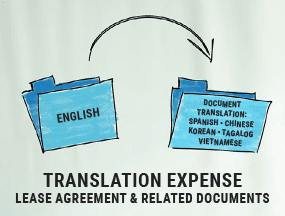SB 1103: The Commercial Tenant Protection Act
On January 1, 2025, SB 1103, otherwise known as the Commercial Tenant Protection Act, will go into effect. The first-in-the-country commercial protections for small commercial tenants was signed into law by Governor Newsom on September 30. The legislation was hailed as a victory by some small business groups, who feel it creates a more balanced and fair commercial leasing environment for small businesses. On the flip side, the California Business Properties Association (CPBA) has labeled the mandates “disastrous for California’s small businesses,” stating that SB 1103 will “disrupt the commercial leasing landscape by imposing requirements detrimental to both property owners and the small businesses and nonprofits this bill aims to protect.” Other industry groups like ICSC and BOMA staunchly opposed the legislation, with BOMA concluding, “While this bill has the best intentions, it will harm the businesses it aims to protect.”
What is the Commercial Tenant Protection Act (SB 1103)?
 In 2019, the California State Legislature enacted the Tenant Protection Act to safeguard long-term residential tenants by limiting rent increases and restricting evictions. Until now, these statewide tenant protections have been confined to residential tenants, but with the implementation of SB 1103, protections are extended to “qualifying commercial tenants.” These protections are outlined below in Overview of Changes.
In 2019, the California State Legislature enacted the Tenant Protection Act to safeguard long-term residential tenants by limiting rent increases and restricting evictions. Until now, these statewide tenant protections have been confined to residential tenants, but with the implementation of SB 1103, protections are extended to “qualifying commercial tenants.” These protections are outlined below in Overview of Changes.
A qualified commercial tenant is 1) a tenant that is a microenterprise (as defined in Business and Professions Code Section 18000(a) – typically fewer than five employees and limited capital); 2) a restaurant with fewer than ten employees; or 3) a nonprofit organization with fewer than 20 employees.
Overview of Changes
The new law provides three major protections for qualifying commercial tenants.
Notice for Rent Increases and Lease Terminations: Landlords are required to provide advance notice for rent increases and lease terminations. For rent increases under 10%, a 30-day notice is necessary. Rent increases exceeding 10% require a 90-day notice. Additionally, landlords must give a 60-day notice for non-renewal (or 30 days for tenancies less than a year).
 Translation of Lease Agreements: To ensure transparency and understanding, commercial leases negotiated in languages other than English must be translated into the tenant’s primary language. For any lease or rental agreement with a qualified commercial tenant that was negotiated primarily in Spanish, Chinese, Tagalog, Vietnamese, or Korean, the landlord must provide the tenant with a translated copy of the lease or rental agreement before execution. If a translated copy of the lease or rental agreement is not provided, the qualified commercial tenant may rescind the lease or rental agreement.
Translation of Lease Agreements: To ensure transparency and understanding, commercial leases negotiated in languages other than English must be translated into the tenant’s primary language. For any lease or rental agreement with a qualified commercial tenant that was negotiated primarily in Spanish, Chinese, Tagalog, Vietnamese, or Korean, the landlord must provide the tenant with a translated copy of the lease or rental agreement before execution. If a translated copy of the lease or rental agreement is not provided, the qualified commercial tenant may rescind the lease or rental agreement.
Building Operating Fees: Landlords must provide detailed documentation explaining how building operating costs are calculated and allocated. Tenants can request supporting documentation for further clarification, and landlords are required to provide qualified commercial tenants with supporting documentation for building operating costs before they may charge a fee to recover such costs. In addition, landlords may not change the method or formula used to allocate building operating costs to a qualified commercial tenant in a way that increases the tenant’s share of such costs unless the tenant is provided with written notice of the change and supporting documentation for the basis of the change. A qualified commercial tenant may raise a landlord’s violation of this section as an affirmative defense in an action for unlawful detainer or recovery of possession based on failure to pay building operating costs.
Note: It is essential to remember that many of the commercial tenant protections enacted under SB 1103 are expressly not “waivable,” meaning that language in leases seeking to modify the protections of SB 1103 will be considered void.
What Landlords Need to Know
 To benefit from the protections afforded by SB 1103, a tenant must affirmatively notify the landlord in writing of their “qualified commercial tenant” status before lease execution (for leases exceeding 30 days) and annually thereafter. Upon providing such notice, a qualified commercial tenant is entitled to additional landlord obligations, including detailed documentation and justification of building operating fees and costs, negotiation of language translation services, and extended notice periods for rent increases and lease terminations.
To benefit from the protections afforded by SB 1103, a tenant must affirmatively notify the landlord in writing of their “qualified commercial tenant” status before lease execution (for leases exceeding 30 days) and annually thereafter. Upon providing such notice, a qualified commercial tenant is entitled to additional landlord obligations, including detailed documentation and justification of building operating fees and costs, negotiation of language translation services, and extended notice periods for rent increases and lease terminations.
As a tenant, if you believe your business qualifies as a “qualifying commercial tenant,” consider informing your landlord so that you can take advantage of these protections.
Both the CPBA and BOMA issued detailed responses to the bill’s passage (click on the highlighted text for a more in-depth, one-page analysis), which both organizations feel could present challenges for building owners. Below are some of the highlights.
Translations: Landlords must translate leases into the language primarly used in the negotiation process, which adds extra work and legal risks. Initial cost estimates indicate that accurate translations of legal documents start at around $10,000.
Detailed Documentation Requirements: The bill requires landlords to provide detailed, itemized, and dated documentation of building operating costs within 30 days of a tenant’s written request. This requirement is administratively burdensome and costly, especially for small property owners who may lack the resources to maintain extensive records.
Cost Allocation Restrictions: This restriction significantly impacts a property owner’s ability to manage unforeseen expenses, including emergency repairs, property insurance and tax increases, necessary major capital improvements or upgrades to the property, and regulation compliance.
Legal and Financial Risks: The new rules might make landlords hesitant to rent to small businesses because of the added risks. This will negatively impact communities seeking mom-and-pop businesses and instead make major franchises more attractive to landlords.
Conclusion
Whether you’re a tenant or a landlord, now is the time to ensure you fully understand these changes and prepare accordingly. If you are a business owner or a property owner concerned about how SB 1103 may impact your lease or need guidance in navigating these new regulations, contact a Voit broker in your market.









